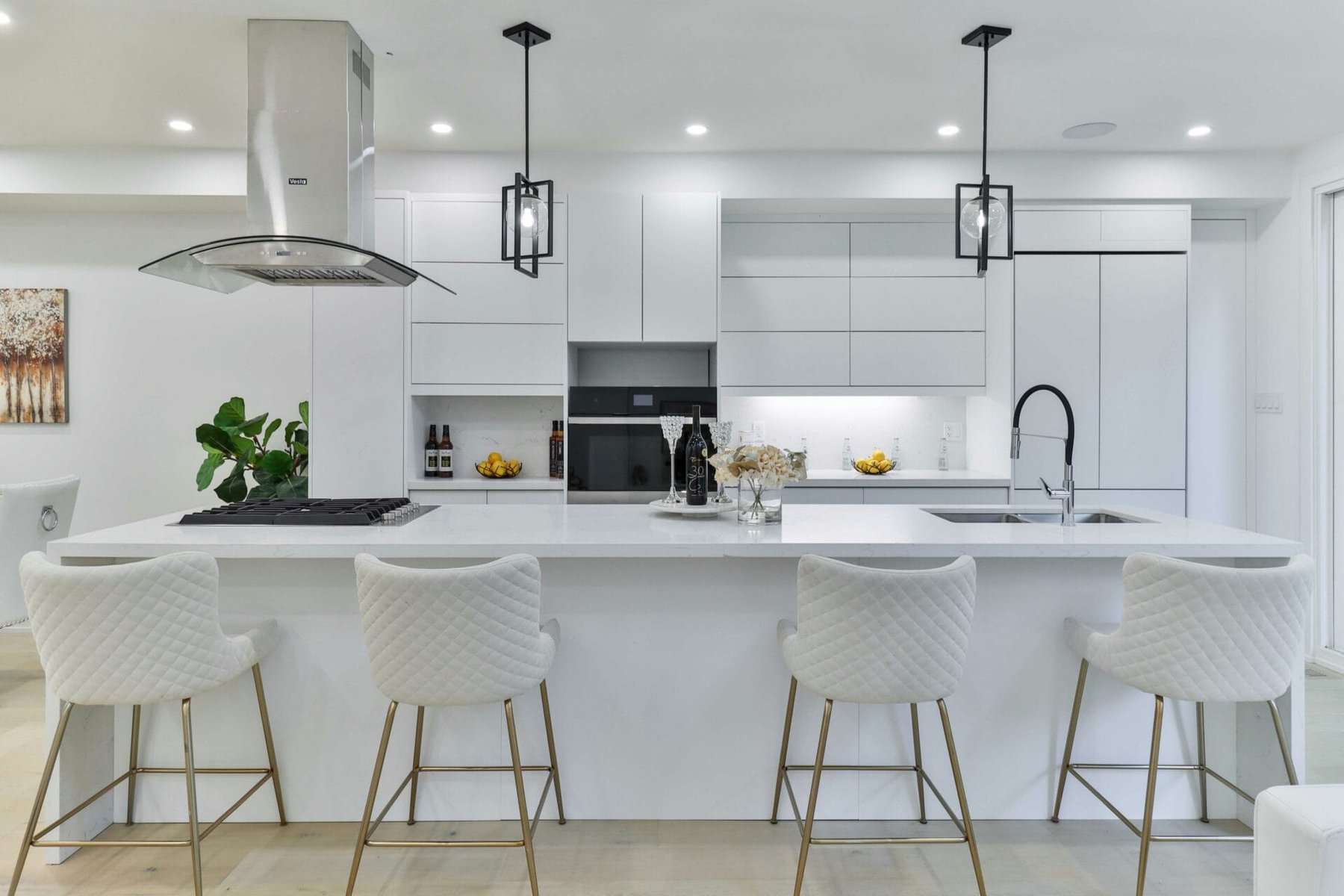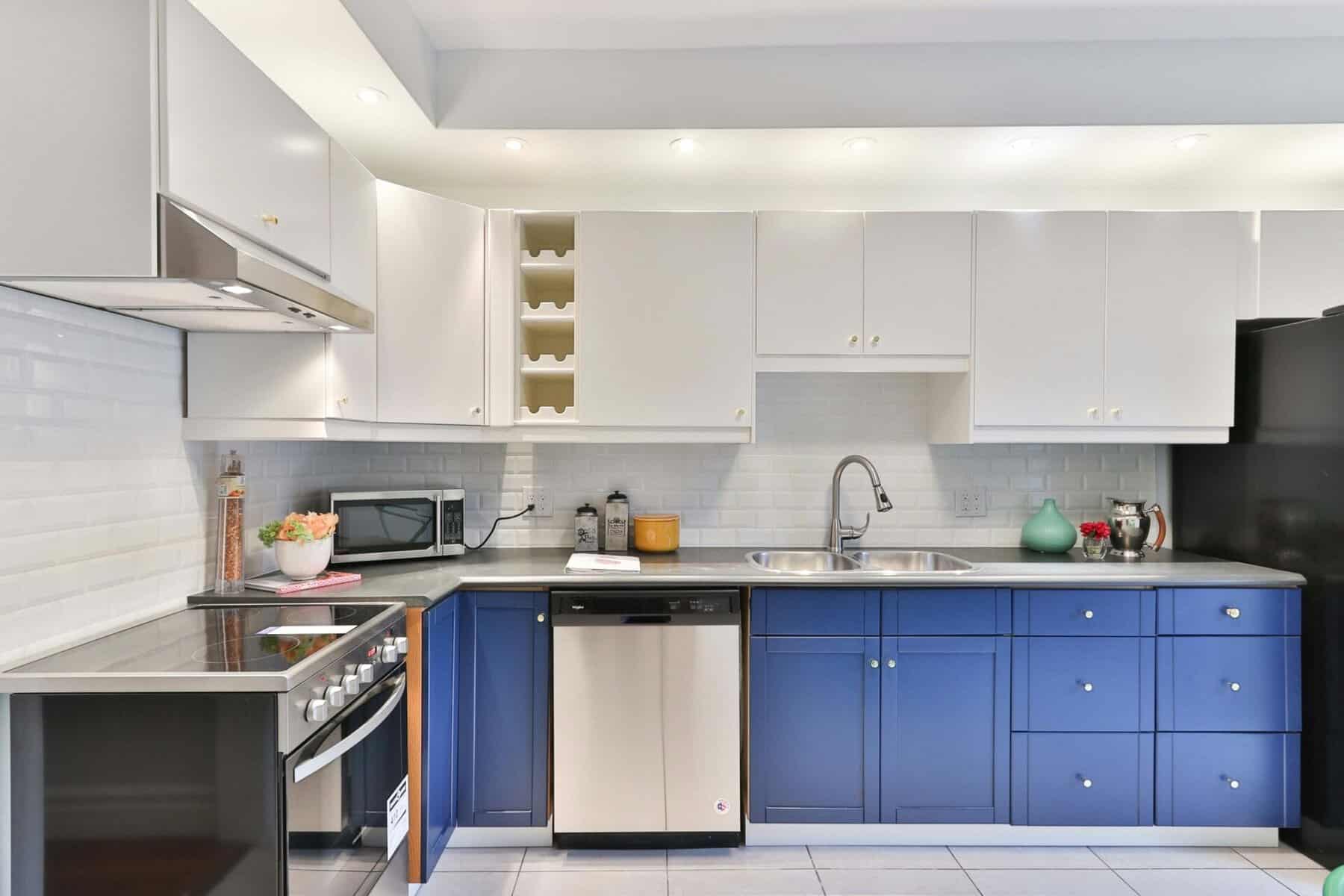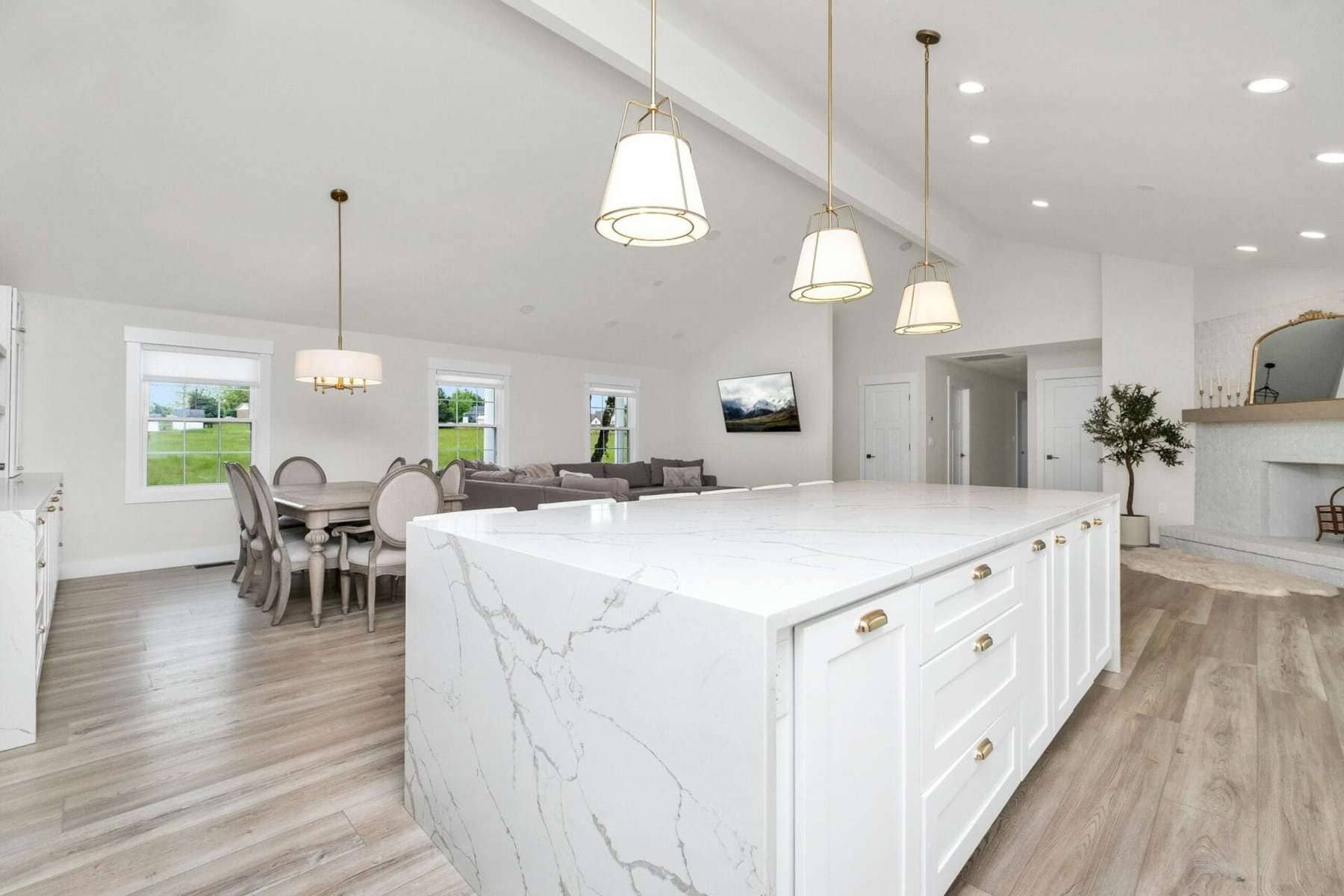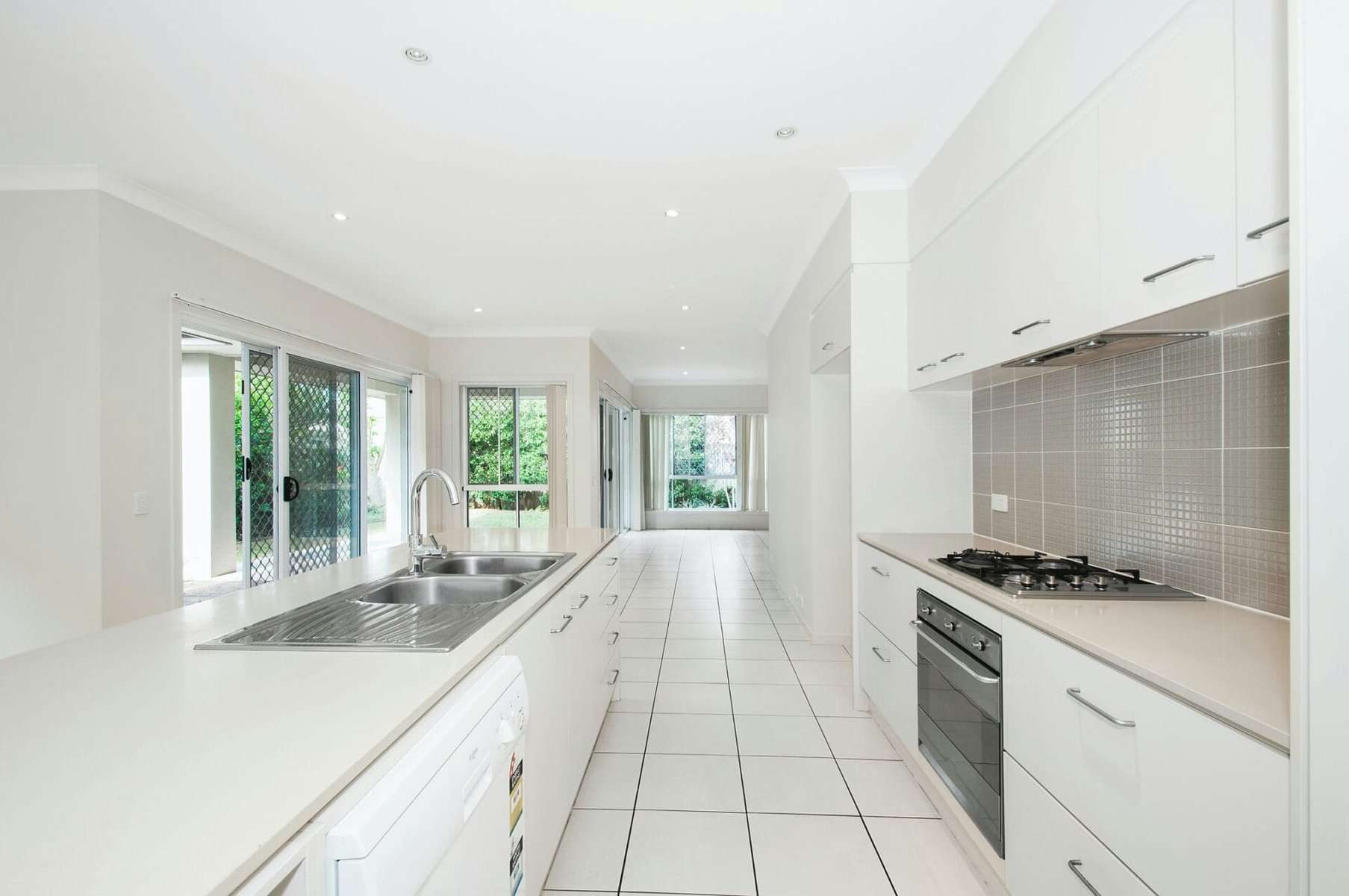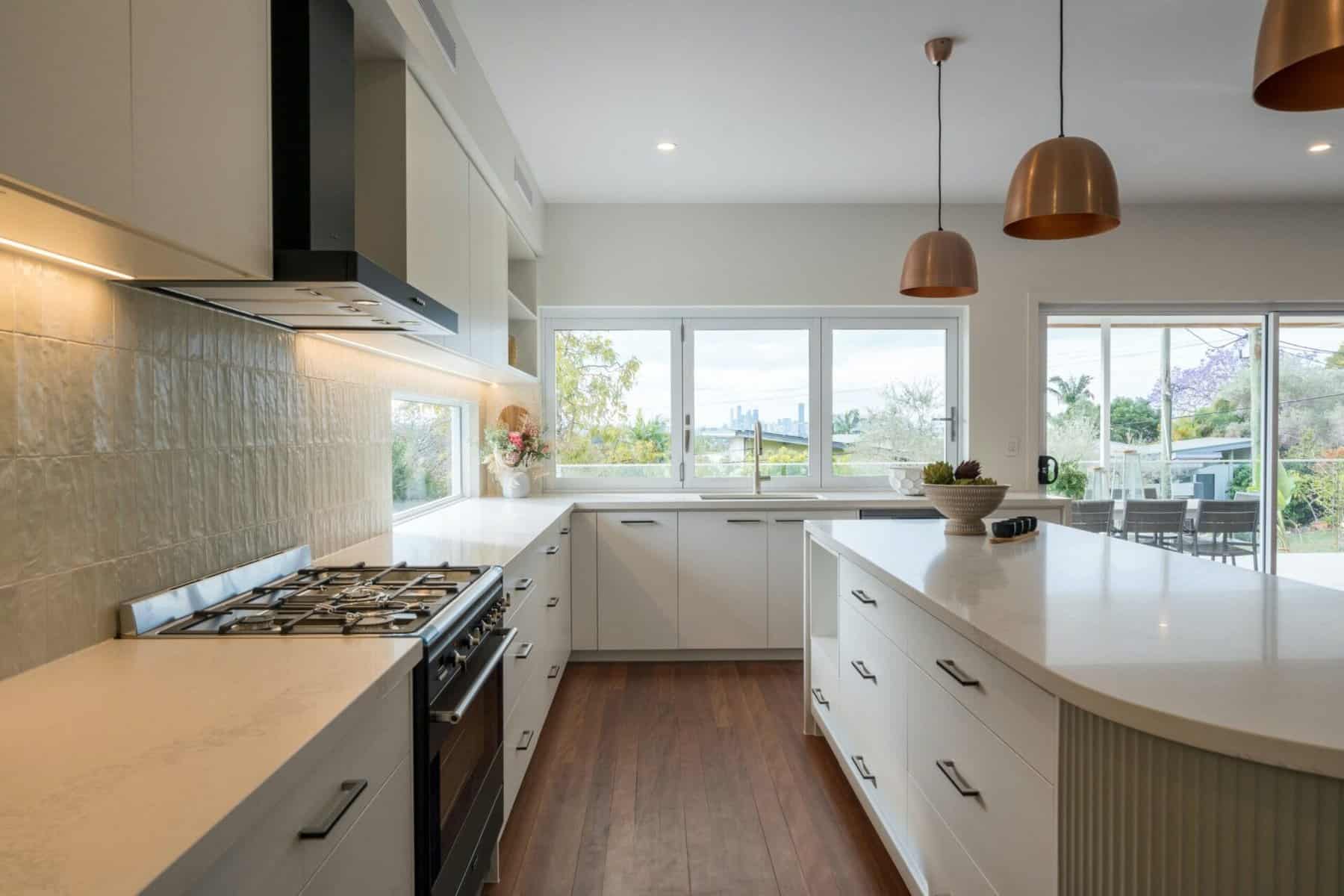- Bina Rumah Batu-Bata
- Zero Deposit
- Spesifikasi Rumah
- Lokasi Projek
- Pembiayaan LPPSA
- Garis Panduan LPPSA (Rasmi)
- Soalan Lazim LPPSA
- E-Book LPPSA (Download)
- 1. Apa itu LPPSA?
- 2. Kelebihan LPPSA
- 3. Syarat Kelayakan
- 4. Jenis-Jenis Pembiayaan
- Jenis 1 – Pembelian Rumah Kediaman Yang Telah Siap
- Jenis 2 – Membina Rumah Di Atas Tanah Sendiri
- Jenis 3 – Membeli Rumah Kediaman Yang Sedang Dibina
- Jenis 4 – Pembelian Tanah Bagi Pembinaan Rumah
- Jenis 5 – Melunaskan Keseluruhan/ Sebahagian Pinjaman Sedia Ada Daripada Bank/ Institusi Kewangan
- Jenis 6 – Pembinaan Rumah Kediaman Di Atas Tanah Yang Sedang Dibiayai Oleh BPP/ LPPSA
- Jenis 7 – Ubah Suai Rumah Yang Sedang Atau Telah Selesai Bayar Melalui LPPSA
- 5. Semak Kelayakan LPPSA
- 6. Dokumen Yang Diperlukan
- 7. Insurans/ Takaful LPPSA
- 8. Kos Yuran Guaman
- 9. BONUS: Bina Rumah
- Pembiayaan Koperasi
- Pengeluaran KWSP
- Bayaran Tunai
- Kalkulator
Contractor to Build House: Questions, Articles & Summary

Contractor to Build House: Questions, Articles & Summary
- How do I find and hire the right contractor to build my house?
- What should I look for when interviewing and evaluating potential contractors?
- What questions should I ask potential contractors before hiring one?
- How do I check a contractor’s references and verify their experience?
- What is a reasonable timeline to expect for completing house construction?
- How much should I budget for a contractor to build a custom house?
- What is the typical process and phases of new home construction?
- What contracts and agreements should be in place with a contractor?
- How can I ensure quality workmanship from the contractor during construction?
- What are red flags or warning signs to watch out for with contractors?
How do I find and hire the right contractor to build my house?
Hiring the right contractor is one of the most important decisions you’ll make when building a new custom home. Here are some tips for finding and selecting the ideal contractor for your project:
Start your search early – Begin the process of finding a contractor several months before you want construction to begin. This gives you time to thoroughly vet potential candidates.
Get recommendations – Talk to friends, neighbors, realtors, architects and anyone who has built a home recently. Ask them about their experience with contractors and if they can recommend any reliable ones. Word-of-mouth referrals are invaluable.
Look at recent work – Narrow down your list to 3-5 contractors whose recent projects you can visit and evaluate first-hand. Assess the quality of their work and ask the homeowners about their experience.
Interview multiple contractors – Take the time to thoroughly interview each potential contractor in-person. Prepare a list of questions about their experience, specializations, licensing, process, past clients, warranty, fees, and more. Pay attention to how professional, knowledgeable and responsive they are.
Check references – Ask contractors for multiple references from past clients and speak to them at length regarding their satisfaction. Look for red flags like significant budget overruns, delays, subpar work, lack of communication, etc.
Verify credentials – Make sure any potential contractor is properly licensed, bonded and insured. Ask to see proof. Unlicensed or uninsured contractors present huge financial and legal risks.
Get bids from 3 contractors – Have your top 3 choices submit detailed, itemized bids for the project. Compare bids carefully looking for inconsistencies, inaccuracies or very low bids that may indicate corners will be cut.
Trust your gut – Consider how well your personality meshes with each contractor. This is key since you’ll be communicating regularly throughout the lengthy process. Ensure you feel confident they are ethical, honest and responsive.
Get it in writing – Don’t make a final selection until you have a detailed, legally binding contract in place. It should specify project scope, timeline, warranty, payment schedule, change order process and more.
Plan for contingencies – Build in financial and scheduling contingencies in case of permitting delays, weather issues, or other unforeseen circumstances. A good contractor will help you prepare for the unexpected.
The process takes time and diligence, but finding the right contractor for your custom home build is worth the effort. They will bring your vision to life and handle the countless details that come with major construction. Invest the time upfront to make a careful, informed choice.
What should I look for when interviewing and evaluating potential contractors?
Interviewing and thoroughly vetting contractors before selecting one to build your home is critical. Here are some of the key things to look for:
Experience – Ask about their years in the business, number of projects completed, and experience with building homes similar to your design. Look for depth of experience, not just longevity.
Specialization – Determine if the contractor specializes in new custom homes or if they also do additions, renovations, commercial work, etc. Custom home building requires refined expertise.
Solvency – Contractors should provide financial statements that demonstrate the company’s stability. Understand their cash flow, credit and ability to purchase supplies and pay subcontractors consistently.
Reputation – Get feedback from past clients on their overall satisfaction working with the contractor. Look for reviews on sites like Yelp. Reputation matters.
References – Reach out to references personally to ask about their experience. Inquire about quality, timeliness, communication, budget, etc.
Credentials – Verify required licensing, insurance and bonding. Unlicensed contractors present huge risks.
Process – Ask contractors to walk you through exactly how they build a home from start to finish. Seek clarity on their systems and processes.
Subcontractors – Find out if they use subcontractors for critical work like foundation, framing, electrical, plumbing, etc. Understand how they are vetted and managed.
Warranties – Ask about workmanship warranties they provide. Most offer 1 year but quality builders often warranty for 2-10 years.
Project management – Discuss how they assign and manage project managers and supervisors. These are your main contacts throughout the build.
Scheduling – Builders should use clear project management software to plan and schedule all construction phases. Ask to see a sample.
Budget and costs – Get extremely detailed bids and ask questions until you understand what is included. Watch for hidden costs.
Change orders – Understand their policies around changes mid-project. A clear written change order process should protect both parties.
Communication – Ensure they lay out regular communication (e.g. email, phone, meetings, project software, etc.) to keep you updated on progress and issues.
Dispute resolution – Discuss how they handle major disputes if they arise. Contracts should have mediation and arbitration clauses.
Site supervision – Ask about their supervision process to verify work is done properly. Good contractors closely inspect work.
Cleanliness – Builders should keep sites neat, contained and clean on an ongoing basis. Visit one of their current jobsites.
Taking time for thorough interviews now alleviates headaches down the road. Dig deep with contractors before you make this key partnership.
What questions should I ask potential contractors before hiring one?
Asking insightful questions of contractors you are vetting is a must. Here are some of the most important questions to ask:
How long have you been in business? Look for 5+ years of experience and financial stability. Make sure they have weathered down economies.
How many custom homes have you built in the last 2 years? Look for substantial experience with projects similar to yours. Custom homes differ from spec homes.
What size projects do you typically work on? Make sure they are comfortable with a project your size and that yours won’t be too small for their focus.
Are you licensed, bonded and insured? Verify they are licensed in your state and carry liability insurance and bonding to protect you. Ask for proof.
Can you provide 3 references from past custom home clients? Call references and ask how satisfied they were overall with the contractor’s work.
Do you provide itemized, detailed bids? Scrutinize bids carefully to understand what is covered versus not covered. Watch for inconsistencies or gaps.
What is your policy on change orders? Look for fair, transparent pricing on changes and get all change orders in writing before paying.
How long is your workmanship warranty? Most offer 1 year but quality builders often warranty work for 2-10 years. Longer is better.
Who are your key sub-contractors? Ask about their relationships with electricians, plumbers, framers, etc. Strong subs are critical.
What kind of project management software do you use? Look for robust software tools to plan, schedule, budget, communicate, invoice, etc.
How often will we meet during the project? Ask for regular progress meetings and site walks as well as email/phone communication.
Who will be my main point of contact? Get a clear dedicated contact person to interface with daily like a project manager or superintendent.
How do you solicit and respond to client feedback? Quality contractors seek feedback throughout projects to ensure clients are satisfied.
What percentage of your clients are repeats or referrals? The best contractors generate a high volume of business through word-of-mouth.
What steps do you take to protect the jobsite and existing structures? Look for diligence around site appearance, cleanliness, safety and care of current elements.
What are your policies on smoking, music, harassment, substance use? Ensure rules that address professionalism, safety and respect.
How do you handle disputes if they arise? Look for a mediation and arbitration clause in the contract for orderly dispute resolution.
Asking probing questions now saves headaches later. Don’t be shy about interrogating all of your contractor candidates thoroughly.
How do I check a contractor’s references and verify their experience?
Carefully checking references and verifying experience is crucial when vetting potential contractors. Here are some tips:
Ask for multiple references – Quality contractors should be able to provide phone numbers and emails for at least 5 happy recent clients. Beware those who hesitate.
Follow up with every single reference personally – Don’t just collect the contact info and move on. Reach out to each previous client and set aside 30 minutes for an interview.
Dig deep with questions – Avoid just asking if they were “satisfied”. Ask detailed questions about budget, schedule, quality, supervision, communication, disputes, cleanup, callbacks, and more.
Listen carefully for hints of dissatisfaction – References are likely to be positive since they were hand-picked by the contractor, but listen for subtle signs like hesitations or qualifiers that hint at issues.
Try to view the contractor’s work in person – Ask if you can do a site visit to the homes of references with similar projects to inspect the finished product.
Learn about projects in progress – Drive by current job sites of the contractor as well to observe appearance, safety standards, cleanliness,etc.
Look for recent experience and longevity – While overall years in business is great, focus on how much active building they’ve done in your area in the last 2-5 years.
Watch for fancy corporate offices or websites – These may indicate more emphasis on marketing than craftsmanship. The best contractors rely on quality work instead.
Research public records on complaints or violations – Your state contractor licensing board will list complaints, violations, disciplinary actions taken, if any.
Search online reviews – Look for reviews on Google, Yelp and other sites. Watch for trends and specific details cited. Take negative comments seriously.
Verify necessary licensing – Make sure they have active, up-to-date contractor licenses required in your state and locale. Licensing shows legitimacy.
Ask probing financial questions – Gauge their financial means, credit and ability to float construction financing if needed. Undercapitalized contractors can fail.
Look for depth of experience in custom homes – If they also do commercial work, flips, additions or other projects, their expertise with custom homes may be lacking.
Request proof of insurance – Reputable contractors carry substantial general liability insurance, workers compensation insurance, and bonding.
Doing your reference and background homework takes time but gives you great insight into contractors. Follow up on every lead to get the full picture.
What is a reasonable timeline to expect for completing house construction?
For many custom home builds, an expected timeline of 9-14 months from breaking ground to move-in is typical. However, many factors influence the schedule:
Home size – Larger, more expansive homes obviously take more time. An approximate range is 6-12 months for 2,000-3,500 sq.ft. and 12-18+ months for luxury or larger estates.
Customization – Heavily customized homes with lots of intricate detail work will have longer timelines than more cookie-cutter designs. Unique features add time.
Materials shortages – Recent supply chain issues have extended many home builds. Some specific materials like windows may have long lead times.
Weather – Colder climates where winter weather halts outdoor work will extend overall timelines by several months compared to warmer regions.
Crew availability – Contractors juggle multiple projects. If key subcontractors like framers are stretched thin, your schedule may get pushed back.
Permitting process – Some municipalities approve permits quickly; others can cause delays of weeks or months needing plan re-submissions.
Work phase – The busiest construction phases like framing, electrical and plumbing trades are often bottlenecks. Site work and interior finishes move quicker.
Foundation type – A home with a crawlspace can be framed faster than one requiring an excavated basement. Deep digging slows early work.
Land conditions – Challenging soils, grading issues or buried boulders discovered onsite can add weeks of extra site work to the timeline.
Change orders – Making significant design changes mid-project almost always impacts the schedule. Even small changes can cascade.
Payment issues – Delayed payments from the client can pressure contractor cash flow and cause slowdowns. Most require draws.
Inspections – If key inspections like plumbing, electrical or framing fail initially, delays ensue while corrections are made.
Unforeseen issues – Any number of unexpected problems like damaged supplies, illness or acts of nature can lead to delays. Pad contingencies.
Contractor workload – Contractors juggling multiple projects may shift resources away and de-prioritize yours if you???re not assertive.
While delays are frustrating, realize some lag is inevitable. Maintain patience and perspective through the construction process. Quality is worth waiting for.
How much should I budget for a contractor to build a custom home?
Budgeting for a major custom home build requires understanding key costs:
Land acquisition – Budget $100K-$500K+ depending on location. Land in desirable areas comes at a premium.
Permits and fees – Plan around 5% of total costs for permits, surveys, architectural fees, utility hookups, impact fees, etc.
Site work – Estimate 5-10% of costs for clearing, excavation, grading, landscaping, septic, wells, etc.
Foundation – Concrete footings/walls for a standard home often run $20K-$30K, but far more for estates or challenging soils.
Framing – Rough framing of a 2,000-3,000 sq.ft. home may run $20K-$30K in materials and labor. Custom designs cost more.
Exterior finishes – Siding, roofing, windows, doors, porches, garages can total $60K-$150K+ depending on materials.
Insulation and drywall – Figure $15K-$25K for professional installation of insulation, hanging drywall, taping and finishing.
HVAC – Heating/cooling equipment, ductwork and vents usually fall in the $15K-$30K range depending on the system size and design.
Plumbing – With rough-in, fixtures, water lines, septic and finishes, budget $25K-$40K+. Custom bathrooms, hot tubs, etc. raise costs.
Electrical – Lighting, wiring, breaker box and finishes will likely cost $25K-$40K+ depending on square footage and circuits.
Cabinets and Countertops – Mid-range cabinets and quartz counters for a large kitchen easily top $30K-$50K+. Higher for luxury choices.
Flooring – Tile, hardwood, carpet and other flooring can range from $10K for basic carpet up to $50K+ for high-end options.
Trim, doors and hardware – Interior and exterior moldings, doors, railings, and hardware can cost anywhere from $15K into the stratosphere.
Painting and finishes – Wall textures, interior/exterior paint, ceilings and more run $10K-$25K typically. More for complex faux finishes.
Profit margin – Contractors typically charge 15-25% for overhead costs, supervision and profit.
Contingencies – Smart budgeting includes 10%+ extra as a buffer for the inevitable unknowns.
Building costs can vary based on infinite factors, but prepare for substantial expenditures in the $300K-$500K+ range, and far more for custom estates. Lot value also factors hugely.
What is the typical process and phases of new home construction?
The construction of a new custom home typically involves the following key phases:
Planning and Design – This involves creating initial plans and securing permits/approvals from the municipality. Design work includes floor plans, elevations, systems, materials, etc.
Site Preparation – Lot is cleared of vegetation, graded and leveled. Access roads, utilities, and temporary power are installed. Foundation survey is completed.
Foundation – Foundation footings are excavated and poured with concrete reinforced with rebar. Foundation walls are formed and poured, followed by waterproofing and backfilling.
Framing – The floor decking is put down and walls and roof framing begins. Windows and exterior doors are installed. MEP systems (plumbing, electric, HVAC) are roughed-in.
Exterior Finishes – Roof shingles, siding, stone/masonry work, decks and exterior railings are completed. Exterior paint or stain is applied. Gutters and downspouts installed.
Insulation and Drywall – Insulation is installed throughout exterior walls, ceilings and floors. Drywall is hung, taped, mudded and sanded smooth. Textures or finishes are applied.
Interior Finishes – Flooring is installed (hardwood, tile, carpet, etc.) Cabinetry, countertops and fixtures are put in. Trim, doors, hardware, etc are added. Painting is completed.
Utilities and Landscaping– Driveway is poured and walks/paths installed. Final grading and sod/plantings complete exterior. Power, water, septic/sewer lines are finished and activated.
Final Touches – Gutters, shutters, final coatings (stain, paint, etc) and exterior detailing is finished. Interior fixtures like lights, fans, appliances and bath hardware are installed. Radon testing is conducted.
Inspections and CO – Final inspections are completed by the municipality to approve electrical, plumbing, framing, insulation, fireplace and occupancy. Certificate of Occupancy issued.
Move-in – Once the CO is issued, the homeowner completes the pre-closing walkthrough. Final funds are wired, ownership transfers and the client can move in!
While delays or unique factors can alter the timeline, these phases represent the typical workflow and milestones in a custom home build.
What contracts and agreements should be in place with a contractor?
Securing proper contracts and legal agreements with your chosen contractor is extremely important to protect both parties. Key documents include:
Detailed Bid – This specifies exactly what is included in the project scope and what pricing is agreed upon. It should note what is excluded too. All bid details must be in writing.
Construction Contract – This is the legally binding agreement covering the full scope of work, pricing, payment terms, timeline, contingencies and more. Require signatures.
Schedule – Ask for a detailed project schedule that sequences all the major work phases and tracks against estimated start/end dates.
Allowance Schedule – For any allowances in bid (like flooring allowance), require a schedule that shows amount per item allowance and agreed supplier/vendor.
Specified Materials – Require a detailed list of specific brands, models and grade of finishes that are included in pricing like faucets, lighting fixtures, appliances, etc.
Payment Schedule – Include a draw schedule that outlines exact payment amounts tied to completion of defined project milestones. Hold back final payment until end.
Permits – Specify who is responsible for securing necessary permits and who pays associated fees. Usually contractor secures but client pays.
Insurance Certificate – Contractors must provide proof of liability insurance and workers compensation coverage and maintain it throughout the project.
Warranties – Require the contractor provide written warranties on their workmanship. One year is common but 2-10 is better for items like roofing, siding, systems.
Change Orders – Change order terms should establish that any modifications require a signed change order before work proceeds or payments are due.
Allowances – Allowances like flooring or tile need written agreement on overage payments (client covers if goes over). Get pricing in writing.
Dispute Resolution – Well-done contracts specify mediation and arbitration clauses to manage any major disputes efficiently versus lawsuits.
Cleanup – Ensure language addresses site cleanliness, dumpster emptying, final cleaning before turnover, etc.
Punch List – Contractors should agree to complete a detailed pre-turnover punch list walkthrough and fix all issues without delay.
Lien Waivers – Contractors must provide lien waivers from any subcontractors or suppliers, releasing right to place liens on the property.
Having legally sound contracts in place makes the project run far more smoothly and offers protection if disagreements occur. Don’t cut corners here.
How can I ensure quality workmanship from the contractor during construction?
You can help promote quality craftsmanship on your custom home build by doing the following:
Vet contractors thoroughly – Much of the workmanship risk can be mitigated by thoroughly vetting potential contractors and checking references rigorously before hiring anyone.
Communicate expectations – Be crystal clear from the outset about your standards and expectations for detail, quality and finishes. Document this in the contract.
Do progress walkthroughs – Schedule regular onsite walkthroughs, at least biweekly, to visually inspect work underway in each phase before it gets covered up.
Watch key details – Pay special attention in walkthroughs to critical details like proper flashing, sealing, alignment of finishes, straightness of lines, evenness of wall/ceiling finishes, etc.
Review samples/mockups – For major finishes like tile, flooring and cabinets, require that the contractor provide you a sample or mockup for approval before full installation.
Question things – If you see something that looks subpar or sloppy, ask about it. It shows you’re watching and keeping them accountable.
Pay attentively – Don’t make progress payments until work phases meet the quality level agreed upon in contract documents. Only pay for acceptable work.
Document issues – Keep a running list of any issues you notice and send to the contractor for repair. Email creates a paper trail. Take photos.
Demand fixes – For quality issues or imperfections, be polite but firm in requiring the contractor make repairs, replace materials, etc. Hold payments if needed.
Check references – Speak to references of past clients and ask if the contractor did high quality work for them without cutting corners.
Hire an inspector – Consider hiring an independent inspector periodically to identify any quality issues. The contractor pays more attention when inspectors are involved.
Keep communication open – Maintain constant, collaborative communication and you’re more likely to prevent or quickly resolve quality problems when they arise.
Tip well – Providing lunch, snacks or holiday bonuses to workers can boost morale which often translates to better attention to detail.
There are no guarantees, but proactive clients who stay involved and demand excellence tend to get better performance from their contractors.
What are red flags or warning signs to watch for with contractors?
It’s crucial to be vigilant for any concerning red flags or warning signs when evaluating potential contractors. Watch for these issues:
Not licensed – Contractors should be licensed, bonded and insured. Don’t hire any unlicensed contractors – huge liability risk. Verify licensing.
Vague bids – Detailed, precise bids in writing are essential. Beware if a contractor won’t provide full itemized pricing or is resistant.
Extra charges – Repeated add-ons and extras not specified upfront in bid documents can signal dishonest billing practices.
Rushes the process – Quality contractors take time to plan, explain, listen and ensure you understand before hiring. High pressure tactics can mask issues.
Payment demands – Requesting large down payments or progress payments before commensurate work is done raises concerns. Pay for actual completed work.
Shoddy past work – Check reviews and references thoroughly. Evidence of past quality or functionality issues is very concerning. Seek other clients.
Lack of supervision – Contractors should provide proper onsite supervision daily to ensure quality. Lack of attention or leadership is problematic.
Poor communication – Clear, prompt, consistent communication is essential throughout months-long projects. Unreliable communication causes frustration.
Slow progress – Frequent delays, lagging substantially behind schedule and making excuses can indicate disorganization and cash flow problems.
Subcontractors – Quality subcontractors are a must. Verify the experience and reputation of those proposed. Past lawsuits by subs are a big red flag.
Disregard for rules – Blatantly ignoring permit requirements, HOA rules or safety guidelines shows poor business ethics.
No written contract – Verbal agreements or handshake deals are risky. Demand a detailed contract signed by both parties.
No warranty – Contractors should provide robust written warranties on workmanship. Lack of willingness could mean lack of confidence in their work.
Negative online reviews – Multiple bad or concerning reviews on sites like Yelp or the BBB deserve close scrutiny and corroboration.
Watch for these warning signs when evaluating contractors. If anything raises your suspicions, keep looking to find an ethical builder you can trust.
Key Takeaways
- Vet potential contractors thoroughly via reference checks, Better Business Bureau reviews, licensing verification and in-depth interviews.
- Interview at least 3 contractors and ask detailed questions about their experience, specialties, processes, warranties, communication style and past issues.
- Carefully check references by contacting past clients directly to ask about their satisfaction with the contractor’s workmanship, timeliness, budget, etc.
- Require detailed bids, schedules, allowances and specifications to create clarity around what is included and excluded in the project scope and pricing. Leave no ambiguity.
- Sign legally binding contracts that spell out scopes, payments, change orders, dispute resolution, allowances, insurance and more. Verbal agreements carry risk.
- Conduct regular site walkthroughs to closely monitor quality and workmanship. Document any issues in writing and demand prompt resolution.
- Ask questions constantly and stay assertive with supervision and feedback. Contractors cut corners when clients are not attentive.
- Watch for red flags like payment demands before work, lack of licensing, delays, poor past reviews, etc. that can signal problematic contractors.
Conclusion
- Finding and vetting the ideal contractor for your custom home build is a critical process that takes diligence and time upfront.
- Ask penetrating questions, check references exhaustively, scrutinize bids, and review licensing to surface any issues or red flags.
- Require detailed legal contracts and maintain constant communication and supervision. Proactively managing the relationship leads to better outcomes.
- With a trustworthy, experienced contractor secured through a rigorous selection process, you can feel confident in a successful build.
kontraktor rumah
bina rumah
pinjaman lppsa
pengeluaran kwsp
spesifikasi rumah
pelan rumah
rekabentuk rumah
bina rumah atas tanah sendiri
kontraktor rumah selangor









